Facebook was definitely not the start of social media nor was it the first successful one but right now, it is the most heavily used network with the most registered users, widest diversity in users, and powerful enough to shape the near future of social media.
In some regards, this network is the general defacto for churches to begin to engage with congregation members and potential future visitors. Youth groups thrive by engaging with teenagers online, small group volunteers coordinate all future activities via groups and pages, and the church’s presence can be as diverse and powerful with videos, photos, events, and links to blog articles from your church’s website.
The Network’s Persona
 Facebook has become known as the place where everyone is at online. For teenagers, you can find your friends and family. Adults have coworkers, spouses, children, and old high school friends they have not talked to in twenty years. It is a hub for online content where we share our real lives in the digital world.
Facebook has become known as the place where everyone is at online. For teenagers, you can find your friends and family. Adults have coworkers, spouses, children, and old high school friends they have not talked to in twenty years. It is a hub for online content where we share our real lives in the digital world.
If social media were a town, you could equate Facebook as the residential district. You know everyone in your feed, even if you had met them just once and everything is personal. The general mentality is that you meet people somewhere else (face-to-face, on your blog, and at conferences or work) and then personally connect with them on this social network.
This also means that your personal life is on display for all who connect with you. If you do not have privacy settings set up, everyone will be able to see photos of your children, what you did in college, and how you interact with people online.
The Network’s Lingo
- Status – the question “What is on your mind?” is where you post your thoughts and feelings that you want your friends to read
- Groups – close circles of people that share and keep in touch
- Pages – profiles for businesses and brands to connect with people
- Share – posting someone else’s status or content to your followers
- Like – a way to give positive feedback and connect with things you care about
- Mention – tagging your friends in text which links to their profile and notifies them
- Timeline – your collection of the photos, stories and experiences that tell your story
- Lists – a way to organize your friends’ news feed.
- Messages – private message to someone
- Graph Search – a new way of finding people, pages, and common interests with real language questions.
The Network’s Downside
The downside to Facebook for churches comes with how they treat organizations. Having gone public this year, Facebook’s new ultimate goal is to keep their stocks up and therefore make money. Their first action was to make all of the businesses pay for a complete service.
Currently, posting a status update or sharing a link on your Facebook Page will only get it into 15-25% of your fan’s news feeds, due to an algorithm developed by Facebook called EdgeRank. To be able to reach all 100% of your fans and more, you will have to pay for every post you wanted to be promoted. The cost will be between $5 and $20 depending upon how many fans you currently have. Even worse you have no way of privately communicating with fans. This makes for a terrible way to keep in touch.
An alternative is to create a Facebook Group. You can message your members directly, members of the group can see all of your posts all of the time, and you even have the option of it being private or closed so only certain people can join. Yet, there are numerous other problems including, no username URLs, what is said in the group comes up in their news feed but is not viewable on one’s timeline and so nothing can go viral (think, zero referrals which is bad), there is nearly no customization options, no analytics, and you have a limit on how many people can be a part of your group (currently 5,000).
Facebook is Not Your Website
Many churches know that more than 75% of their congregation is on Facebook and with limited staff time, reducing budgets, and fear of how to use a website well, many ministries have succumbed to simply using Facebook as their only presence on Facebook. It is our belief that this is in fact an incorrect use of social media in general and can be a very debilitating thing in the future.
First, we must understand that with a website, you own the property that you are on, can make any changes that you want, and have the final say in whatever happens. It does cost money to buy a website URL and hosting for your webpages whereas Facebook is free, but the consistent changes that happen from Facebook in redesign, policies, and their need to make money should be a warning. If Facebook were to decide to limit what you were allowed to do on Pages or users began to flock away from the network, where would your volunteers and congregation be able to find you?
At the same time, Facebook already is a bit limited in what you can do. If you wanted to have a church blog, upload a church form or e-payments for camp, you need to have your own website. Imagine having a link written in the bulletin to sign up and pay for camp and it fills up completely before the Sunday service was over. You cannot do that on Facebook.
How To Use The Network Effectively
A combined approach for churches should be used here. In a general, public approach for the whole church’s presence, you can use a Facebook Page. This will be seen as the central hub of the whole church’s Facebook presence. Brand well, customize the tabs, link to your church’s websites, and over a general set of status updates, photos, videos, and links. But do not mistake this for your primary way to communicate to people.
For the different parts of your ministry, use Facebook Groups. Your youth group, worship team, children’s ministry, Bible studies, small groups, outreach ministries, and mission trips can all have a group to communicate with the different members. This can become very troublesome if you have numerous ministries and may need to have several different people in charge of running your church’s Facebook presence.
Smaller churches may want to consider doing a Facebook Page that is great for simple communications to both your congregation and those that may not be attending your church yet and then a second option with a Group so that you can directly communicate with your congregation.





[…] Facebook for Churches: Key to Social Media Success – Church Tech Today […]
Good info – you CAN register a domain name and point it to your facebook page – to make it easy for anyone to find your Church’s page.
Hi Ross, So have you done this for your ministry? Can you share an example of a URL and how it points to Facebook? I’d love to hear how you did this. Do you get much traffic to your Facebook page via the dedicated URL? Thanks!
I haven’t done it with Facebook, but using what’s called URL redirection or URL forwarding is fairly common and simple. You can either do it with a meta tag in the index page of your website or, easier still, most domain registrars offer it as a management option. You just register your domain name and then find the domain forwarding field and type the address you want it to deliver your traffic to.
[…] Google Blogs Source- Church Web Design […]
[…] Google Blogs Source- Church Web Design […]
This is a great little intro to facebook booklet for churches just thinking about how to use social media. Another great resource many might not know is the New Media Project website, especially their “Case Studies” and “Theological Essays”. (http://www.cpx.cts.edu/newmedia).
Thanks for the link to the New Media Project resource, and for downloading the quick guide!